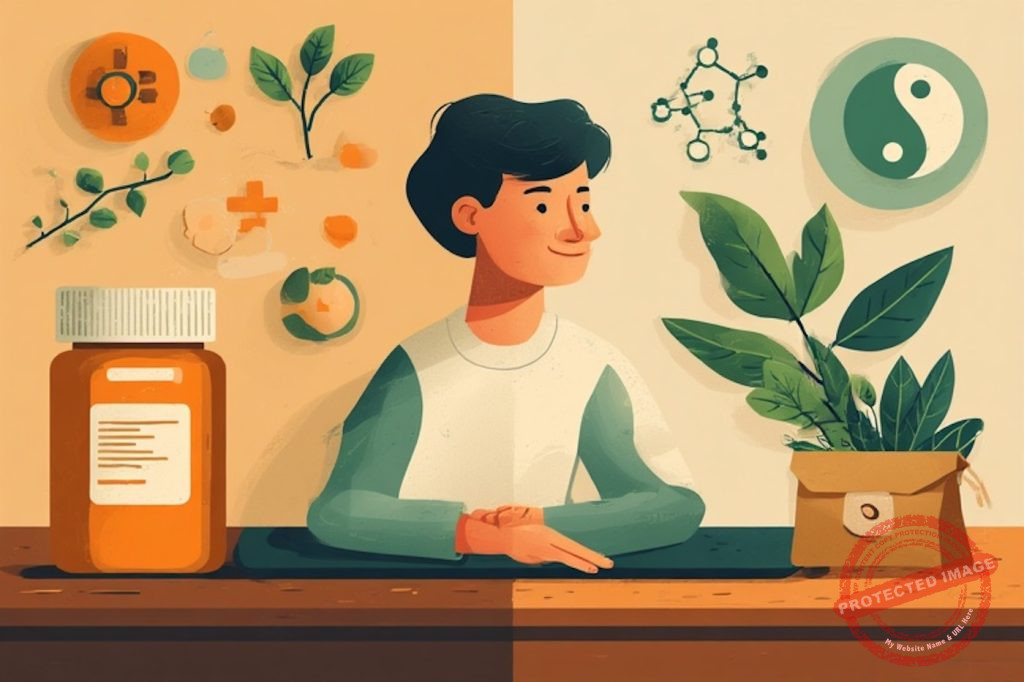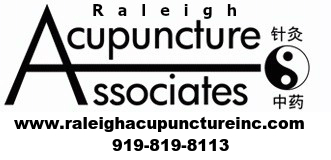
In today’s world, patients are increasingly seeking integrative approaches to health. Instead of viewing medicine as an “either-or” choice, many now recognize the power of combining Chinese Herbs and Western Pharmaceuticals. Herbs can sometimes reduce the need for higher doses of medications or help minimize their side effects, while pharmaceuticals provide rapid and targeted relief in urgent cases. By understanding how the two systems complement each other, patients can achieve better outcomes with fewer risks.
Enhancing Balance: How Herbs and Pharmaceuticals Work Together
Western medications often deliver quick and potent effects. For example, antibiotics such as amoxicillin or azithromycin can clear infections that might otherwise be life-threatening. However, they may also weaken gut flora, leaving patients vulnerable to digestive issues. Chinese herbs like Ban Lan Gen (Isatis Root) or Huang Lian (Coptis) are used alongside antibiotics to support the immune system and protect digestion. This illustrates how Chinese Herbs and Western Pharmaceuticals can form a stronger, more balanced treatment plan.
Another example is hypertension. While drugs such as lisinopril or atenolol can lower blood pressure effectively, some patients still experience dizziness, fatigue, or swelling. Formulas like Tian Ma Gou Teng Yin, containing Gastrodia and Uncaria, can calm the nervous system and improve circulation. Used together, they may allow for lower dosages of prescription drugs, decreasing side effects while maintaining control of blood pressure.
Chronic Illness: Supporting the Body with Herbs and Drugs
Chronic conditions often show the greatest benefit from combining Chinese Herbs and Western Pharmaceuticals. Take arthritis. NSAIDs such as ibuprofen reduce pain but irritate the stomach if taken daily. Herbal formulas like Du Huo Ji Sheng Tang not only ease joint pain but also strengthen connective tissue and improve circulation. Patients can sometimes reduce their NSAID dosage while maintaining pain relief and avoiding gastric irritation.
Another case is insomnia. Medications like zolpidem (Ambien) may help patients fall asleep quickly, but they risk dependency. By adding an herbal formula like Suan Zao Ren Tang (Ziziphus Seed Decoction), which calms the mind and nourishes the heart, patients can transition to lower doses of sleep medication or eventually taper off under medical supervision.
Minimizing Side Effects: The Gentle Support of Herbs
The synergy between Chinese Herbs and Western Pharmaceuticals is also seen in reducing side effects. For instance, chemotherapy drugs remain essential in treating cancer, yet they leave patients exhausted and immunocompromised. Chinese herbs such as Ling Zhi (Reishi mushroom) and Huang Qi (Astragalus) are frequently used to restore vitality and protect the immune system, making treatments more tolerable.
Similarly, proton pump inhibitors (PPIs) like omeprazole effectively control acid reflux but may impair nutrient absorption with long-term use. Herbs such as Chen Pi (Aged Tangerine Peel) and Zhi Shi (Immature Bitter Orange) promote digestion naturally, allowing some patients to use lower PPI doses without relapse. The herbs do not replace the drugs but support the body so that less medication is required.
Practical Examples: Herbs Complementing Pharmaceuticals
Here are several everyday cases where Chinese herbs complement Western medications:
• High Cholesterol: Statins like atorvastatin lower cholesterol but may cause muscle aches. Red yeast rice (Hong Qu) naturally contains statin-like compounds but at lower strength. When combined carefully, patients may achieve cholesterol control with lower prescription doses.
• Type 2 Diabetes: Metformin helps regulate blood sugar but often causes digestive upset. Herbs such as Shan Yao (Chinese Yam) and Huang Qi (Astragalus) strengthen the spleen and improve metabolism, reducing discomfort and supporting blood sugar balance.
• Anxiety and Depression: SSRIs like fluoxetine alter neurotransmitter levels but can produce side effects. Xiao Yao San (Free and Easy Wanderer Powder) harmonizes liver qi and nourishes blood, supporting mood health. Together, they can stabilize emotions with fewer drawbacks.
The Best of Both Worlds
The most powerful medicine is often not one system alone, but a thoughtful combination of Chinese Herbs and Western Pharmaceuticals. Western medicine provides fast, life-saving interventions when needed. Chinese herbs offer long-term support, strengthen the body’s resilience, and help reduce dependence on high-dose medications.
This integrative model respects both traditions. A patient with asthma may rely on inhalers during acute attacks but take herbal formulas like Ma Xing Shi Gan Tang between episodes to reduce frequency and severity. Another patient recovering from heart surgery may take prescribed drugs but also use Dan Shen (Salvia Root) to promote circulation and prevent clotting. These examples highlight how collaboration leads to stronger health outcomes than competition.
Call to Action: Explore Integrative Care
Health care doesn’t need to be a tug-of-war between East and West. By exploring the integration of Chinese Herbs and Western Pharmaceuticals, you may discover a safer, more sustainable path to wellness. If you’re currently on prescription medication and wonder whether herbs could reduce side effects or enhance your results, consult both your doctor and a licensed Chinese medicine practitioner.
The goal is not to replace one system with another, but to weave them together for the best of both worlds. Take the first step today—ask how Chinese herbs can complement your current treatments and open the door to a healthier, more balanced future.
About Raleigh Acupuncture
At Raleigh Acupuncture Associates, we are deeply committed to providing the highest quality professional acupuncture while being rooted in strong Judeo-Christian values of love, faith, kindness, and truth. We guide our practice with compassionate care, where each patient is treated with respect and dignity, regardless of their background, faith, or beliefs. We welcome people from all walks of life and strive to create a warm, inclusive environment promoting healing and holistic wellness. Our dedication to delivering exceptional acupuncture is paired with a genuine love for helping others, making our clinic a place where faith and professional medical care come together for the well-being of every patient.
Next Steps
BOOK NOW to schedule an appointment online.
Meet Our Practitioners (Video).
Learn about all the conditions we treat.
Focus Keyphrase: Chinese Herbs and Western Pharmaceuticals
Image generated with https://perchance.org/ai-text-to-image-generator





Leave a Reply